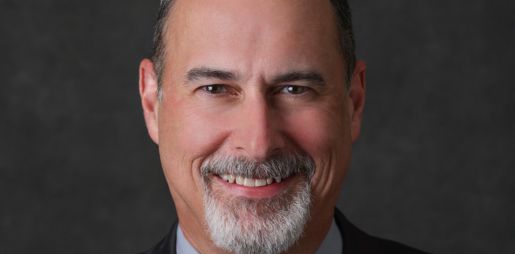When it comes to choosing where you bank, there are a variety of options. National banks, local or regional banks, and even some banks that are completely online. With so many options, how do you know which is right for you?
Most people tend to make their decision based on three things: service offerings, cost, and convenience. Does the institution offer the services I need? What rates do they offer — and what fees do they charge? Do they have retail branches or ATMs where I live and work? How easy is it to get help when I need it?
You’ll notice that the size of the bank is missing from that list of considerations. The reason megabanks attract so many customers isn’t because they’re bigger. It’s because they spend a lot of money to get you in the door, promoting cutting-edge technology that the community bank next door may have, too.
Let’s take a look at everything a community bank can offer. You might be surprised to find that going local can give you more for your money and your community.
Choose from a full range of services
Megabank advertising would have you believe that because they offer more services, they are the best choice for all your banking needs. The truth is that local and regional banks provide all the basic services you need to manage your money.
- Business and personal checking accounts.
- Savings and CDs.
- Online and mobile banking.
- Lines of credit.
- Loans.
- And more.
Many customers move their business from larger banks because they don’t know have a relationship with the institution or they receive poor customer service. Some withdraw because they have a particular situation or need that doesn’t fit the larger banks “cookie-cutter/one-size-fits-all” mentality.
While megabanks may have more product options and departments, most local financial institutions have departments that are tailored to specific needs, too. These days, any bank, large or small, can provide very robust technological banking services — but when you work with a community bank you also have people committed to providing the best possible service.
Let’s talk about community
As part of the local economy, local financial institutions are more incentivized and willing to give back to their communities. We’re talking about investing on a human level through volunteering and as a business by always keeping the needs of the community in mind.
Check out who is leading financial education classes, holding a food drive, or sponsoring charity races or other events in town. Look for projects that build your community, such as providing funding to revitalize properties in the most impoverished areas of your city. Every branch of your local bank likely has a special project or nonprofit that’s near and dear to their heart.
Finally, it’s important to remember that national financial institutions send your money to states across the nation. But when you bank locally, the money stays local. Your bank reinvests that money into your community by providing loans and services to you or your neighbors. Every dollar is used to grow your local economy.
Decisions are made locally
National banks throw a blanket fee, rate, or restriction on products and services that may not benefit the communities in which they operate. It’s a one-size-fits-all approach to banking.
By serving a smaller area, local and regional banks are aware of the specific economic needs, trends, and idiosyncrasies of their community. It makes them quicker to adapt and customize their products and services to match the local market.
This unique approach also gives local business owners an advantage when applying for a loan. With a regional bank, the senior lender and senior banking officers are often steps away from your banker’s office. If an unusual request comes up, they can sit down with leadership and talk through the possibilities and the potential pitfalls for our borrowers quickly and in a collaborative way.
Many financial opportunities require a very fast response from a customer’s bank. The ability to identify the best structure for a particular loan and swiftly approve it allows customers to close on property purchases much quicker than their competitors who bank elsewhere.
Local bankers also build personal relationships with their clients and know detailed information about the market, which often enables them to approve small business loans or other loans that megabanks might reject.
When you bank locally, you are more than just a credit score — and the advice you receive is tailored to you.
Keep more money in your pocket
Local banks could mean bigger savings. Banking locally often results in better borrowing rates and lower fees, as the rates are usually tailored to specific markets rather than regions.
Plus, you won’t see the same aggressive fee-charging strategies that some national banks employ. They offer free accounts, limit monthly maintenance fees, and even work with you to avoid overdraft and ATM fees. You keep more money in your account, which in turn increases your local bank’s ability to offer competitive mortgages and small business loans to people in your community. It’s a win-win.
Get the personalized attention you deserve
If you find comfort in having a personal relationship with your banker or having a physical branch around the corner, local banking is a better fit.
Branches are conveniently located to make them easier to visit. It’s not unusual to be offered a cookie or a cup of coffee when you walk in the door. Since local banks value relationships, they also work hard to reduce turnover. After all, a seasoned employee is a valuable asset who can provide better service.
With a local bank, there’s no 800 number. No call center. You’ll have access to real people who make it a point to get to know you and your financial goals. Customers have a chance to form real bonds with their banking team — and that personalized touch makes all the difference. For any issues that arise, customers know that they can just call their banker’s cell phone and get an answer tailored to their specific needs.
Megabanks tend to have a more rigid, automated process that removes this personal touch. When issues bubble to the surface, you may need to talk to a line-up of people that are new to you and unfamiliar with your financial situation. That’s why working with a seasoned banker who fully understands your financial goals makes a difference. When it really matters, you’ll be glad to have them on your side.
If you would like to learn more about how banking locally with Paragon can benefit you and your business, visit bankparagon.com/banklocal.




